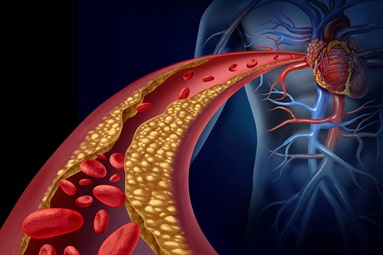Cellular Biology
Understand the mechanisms behind cardiovascular health.
Science News
Journals
Continuing Education

The ATVB Council focuses on arteriosclerosis, thrombosis and vascular biology. The council advances research, addresses prevention, improves diagnosis and treatment, and works actively with other organizations. It shares reliable information through its annual conference, awards and lectures, and in the AHA’s journal, Arteriosclerosis, Thrombosis, and Vascular Biology.
Since 1999, the BCVS Council has advanced understanding of mechanisms of basic cardiovascular regulation to support insights into cardiovascular disease and facilitate new therapies. Emphasis is on integrating molecular/cellular and physiological approaches to address problems relating to genomics, cell signaling, myocardial biology, circulatory physiology, pathophysiology, and peripheral vascular disease.
The GPM Council seeks to advance discovery and translation of biological insights from genetics and omics technologies to improve cardiovascular and brain health through better risk prediction, treatment and prevention for patients. Our expertise spans genetics, genomics, genomic medicine, epigenetics, transcriptomics, metabolomics, proteomics, microbiome, bioinformatics, computational science, and population health.
CRISPR ATTR
First-in-Human in vivo CRISPR/Cas9 Editing of the TTR Gene by NTLA-2001 in Patients With Transthyretin Amyloidosis With Cardiomyopathy
Julian D Gillmore | University College of London, London, United Kingdom
- CRISPR-ATTR trial data summary (PPTX)
- AHA Press Release: Novel gene-editing therapy shows promise for patients with transthyretin amyloid cardiomyopathy
- ClinicalTrials ID: NCT04601051
- Original article: NEJM, 2021(link opens in new window)
IRONMAN
A Randomized Trial of Intravenous Ferric Derisomaltose in Heart Failure With Reduced Ejection Fraction
Paul R Kalra | Portsmouth Hospital, University NHS Trust, Portsmouth, United Kingdom
- IRONMAN Study Data Slide (PPTX)
- Simultaneously Published in The Lancet (new window)(link opens in new window)
- AHA Press Release: Intravenous iron improved long-term outcomes for people with heart failure and iron deficiency
American Heart Association Professional Members
Enjoy instant benefits!
- Free Online Access to AHA Scientific Journals
- Affiliate with our 16 Scientific Councils
- Discounts on Scientific Conference Registration and Online Courses



